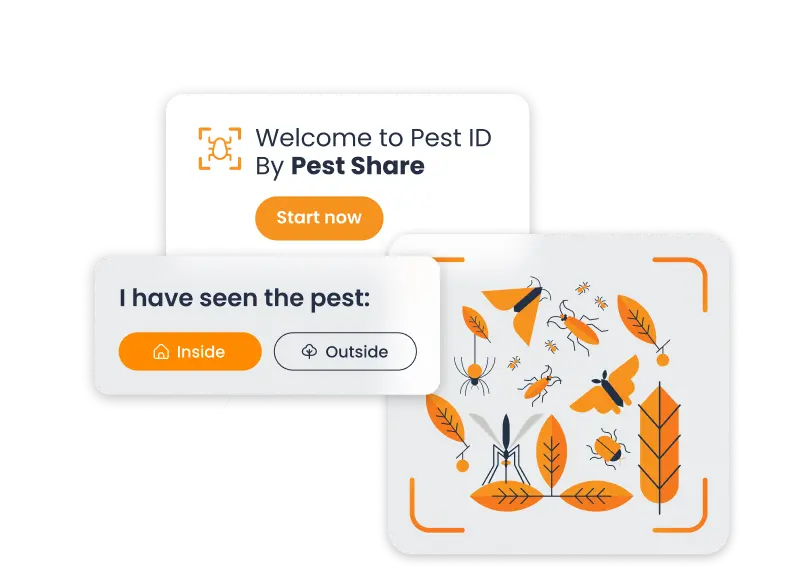with Pest Share!
Pest control isn’t just a one-time concern for property managers. It’s an ongoing responsibility that requires attention, planning, and proper execution. In the world of multi-unit properties, pest control can be a complex issue. This article aims to break down the essential elements of pest control responsibilities for property managers and landlords, shedding light on what you need to know to keep properties pest-free and residents satisfied.
This is one of the most commonly asked questions by both landlords and tenants, and it’s one that doesn’t always have a straightforward answer. The responsibility for pest control can sometimes be a gray area, and understanding who is responsible for what is crucial.

The answer to whether the landlord is responsible for pest control often lies in the lease agreement and local regulations. In many jurisdictions, landlords are required to provide a habitable living environment, which includes keeping the premises free from pests.
However, the specifics may vary. Some lease agreements may specify that the landlord is responsible for regular preventive measures, while the tenants may be held accountable if their actions lead to an infestation. Clear lease agreements that outline the responsibilities of both parties are the best way to prevent confusion and potential legal issues.

If a tenant moves into a property and finds a pre-existing infestation, it is generally the landlord’s responsibility to address the issue. This is where thorough inspections prior to renting out a property become invaluable.
Ensuring that a property is pest-free before a tenant moves in showcases professionalism and attention to detail, enhancing the reputation of the property manager or landlord.
In cases where an infestation is clearly caused by the tenant’s negligence or actions, such as improper food storage or sanitation, the tenant may be held responsible for the cost of pest control. Here again, the lease agreement should ideally outline these responsibilities.
The responsibility for pest control in rental properties can vary widely based on laws, lease agreements, and specific situations. The most effective approach to this complex issue is transparency and clarity in lease agreements, paired with an understanding of local regulations.
The more a landlord or property manager can do to clarify these responsibilities upfront, the smoother the relationship with tenants will be. This includes not only clear lease language but also open communication and education about pest prevention and control.
Lease agreements often spell out the responsibilities of both landlords and tenants regarding pest control. Clarity in the lease is essential to avoid misunderstandings and potential disputes. A comprehensive lease agreement can outline preventive measures, response times, and tenant responsibilities. Tailoring lease agreements with clear clauses about pest control is recommended, as it sets proper expectations and builds trust with the tenants.
In the end, whether or not a landlord pays for pest control may depend on many factors. What remains constant is the importance of understanding those factors and communicating them effectively. It’s not just about fulfilling legal obligations; it’s about building trust and positive relationships with tenants, ultimately contributing to the success and reputation of the property management business.
Prevention is often the best cure, especially when it comes to pest infestations.

Scheduling regular inspections with a licensed pest control professional is a proven way to catch potential problems before they escalate. These inspections can be part of a broader maintenance plan that ensures the structural integrity of the property and the well-being of the residents.
Educating tenants about proper sanitation and pest prevention can be a valuable part of the pest management strategy. Information about garbage disposal, food storage, and reporting pest sightings can foster a collaborative environment.
Collaborating with tenants through education not only helps in pest prevention but also strengthens the relationship between property managers and residents.
A quick response to pest infestations is vital. Delays can lead to the problem spreading to other units, causing greater damage and dissatisfaction among residents.
Engaging professional pest control services is often the best course of action. They are trained to handle various infestations, ensuring the treatment is effective and compliant with local regulations.
Navigating pest control responsibilities is a multifaceted task for landlords and property managers. It demands an understanding of legal obligations, proactive measures, and effective handling of infestations.
A well-planned pest control strategy, aligned with legal requirements, can significantly enhance the resident experience and the overall reputation of the property management firm. Collaborating with tenants, investing in regular inspections, and choosing the right professional services are not just measures of compliance but reflections of a commitment to excellence.
Property managers who regard pest control not merely as an obligation but as an integral part of their service offering, stand to gain trust, loyalty, and possibly even higher revenues through satisfied residents. It’s a matter of professional integrity, community well-being, and smart business practice.
In the ever-competitive field of property management, understanding and efficiently handling pest control responsibilities could be the distinguishing factor that sets a property manager apart from the competition. After all, a satisfied resident is often a loyal resident, and loyalty translates into a stable, thriving community.

Pest Share is a technology platform designed to provide affordable pest control to renters across the country.
©2024 Pest Share All Rights reserved. Developed and designed by Pest Share